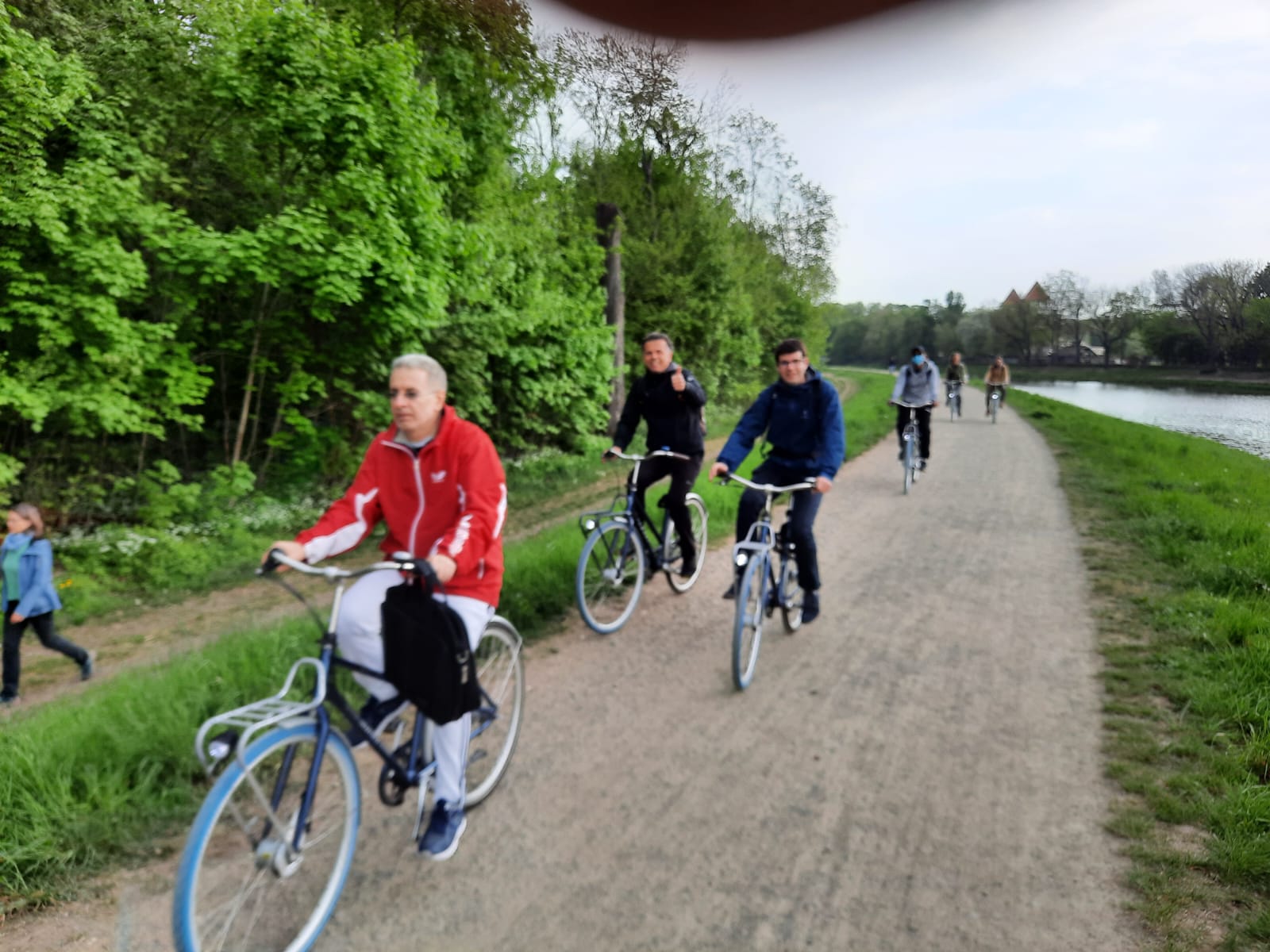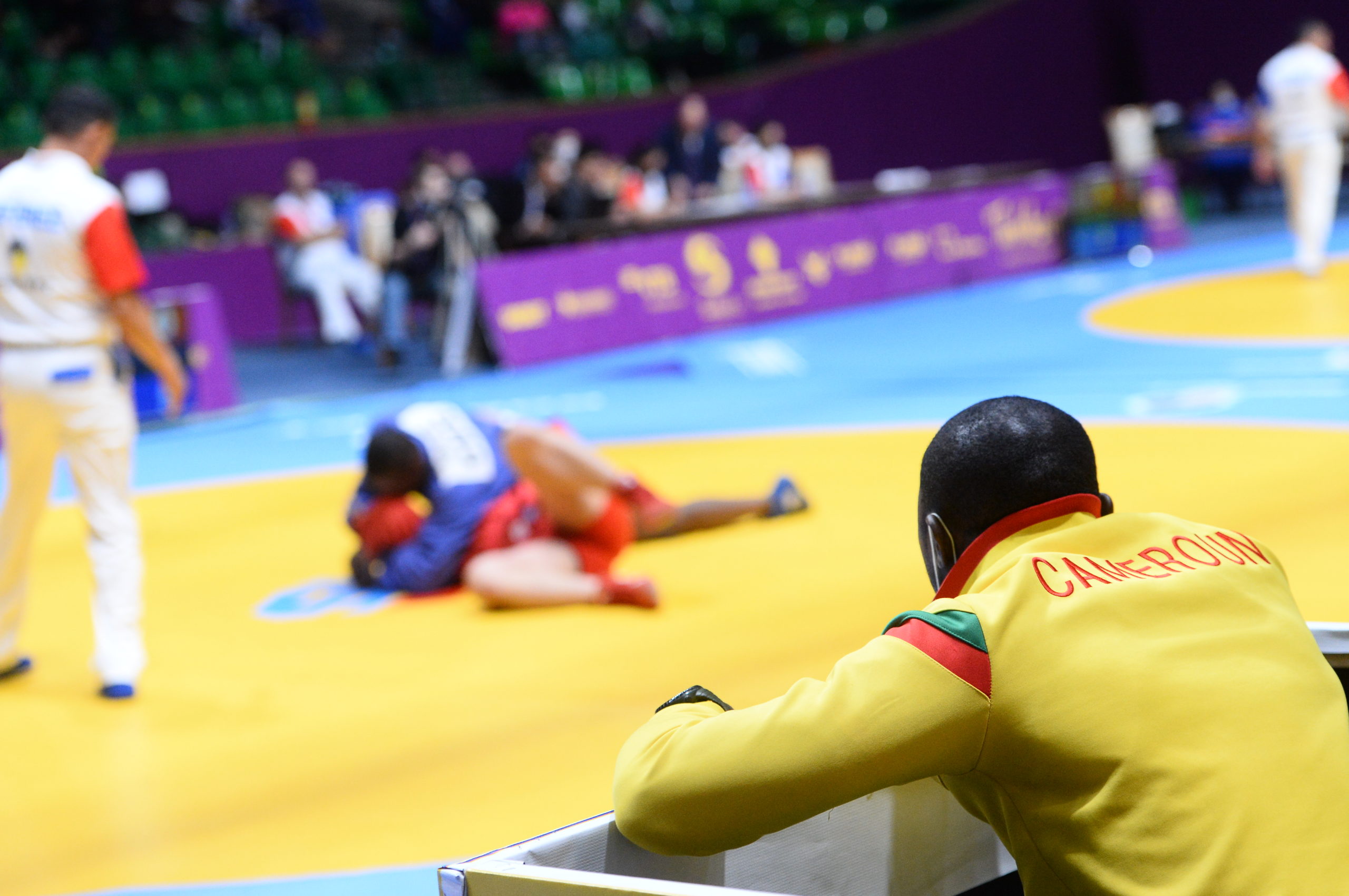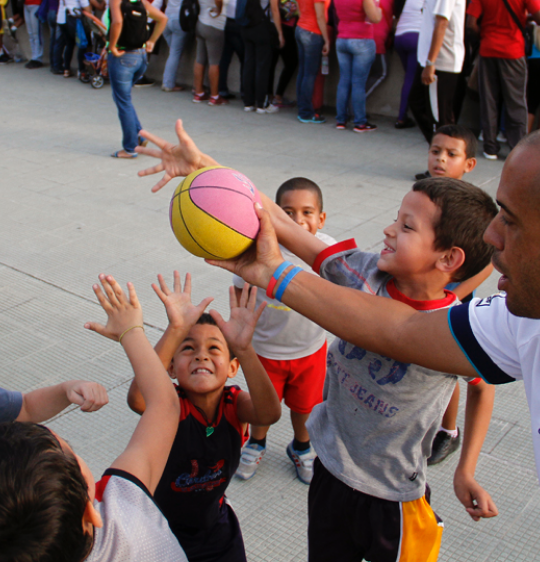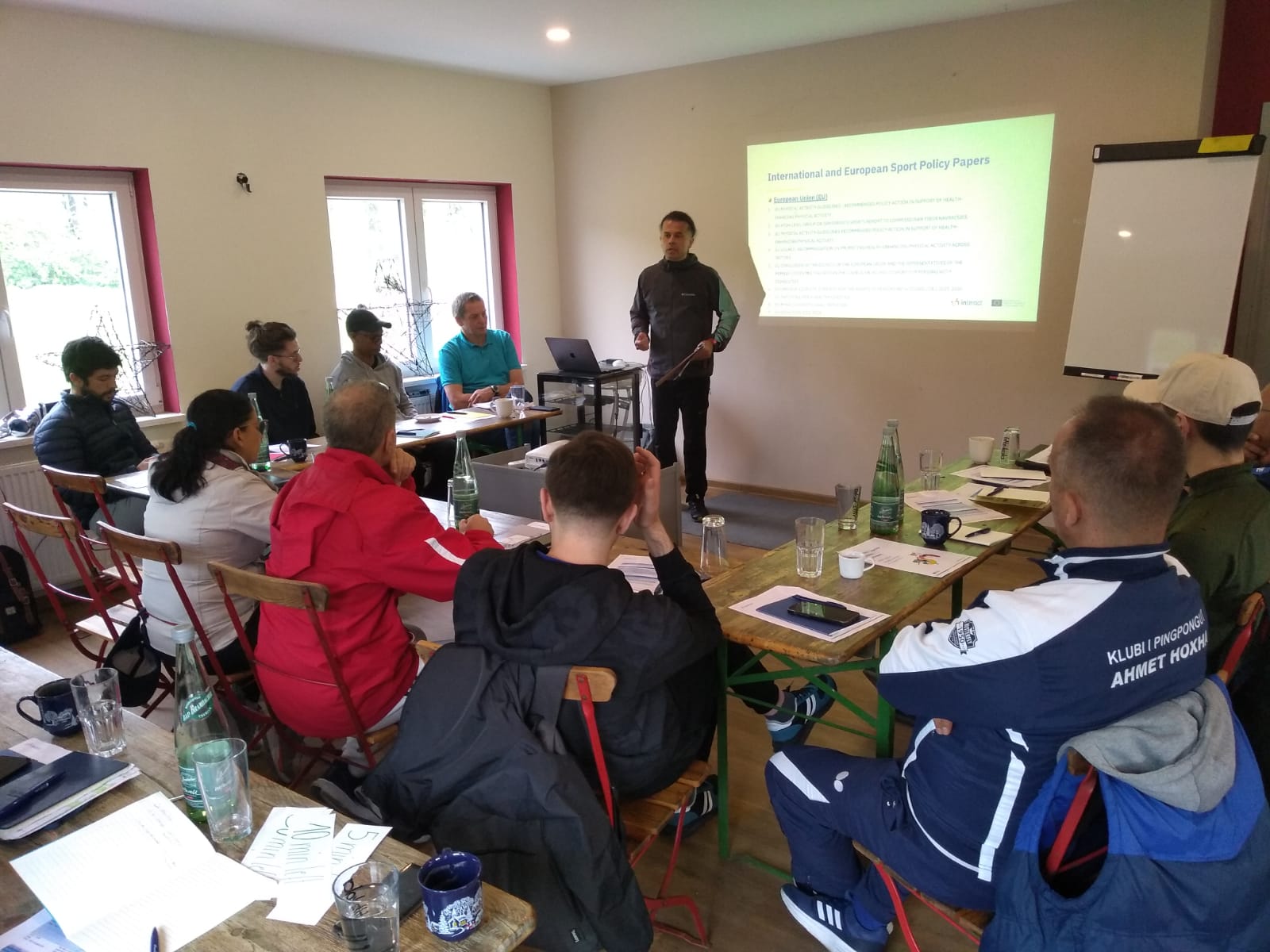Home > Toolkit > People, Planet, and Prosperity in Sport for All: Guidelines & Recommendations
The United Nation Sustainable Development Goals (SDGs), adopted by 193 countries in 2015, serve as a global blueprint for addressing the world’s most pressing challenges by 2030. These 17 interconnected goals aim to tackle issues like poverty, inequality, climate change, and access to education and healthcare. At the heart of the SDGs are three guiding principles: People, Planet, and Prosperity.
International Sport Organizations
National Sport Federations
Whether you are organising a small local event or leading a large initiative, every action counts. Together, we can make sport a driver of meaningful change, inspiring a world where everyone thrives, the planet is respected and opportunities are shared.
Sport is more than just a game—it is a powerful tool for change. It brings communities together, inspires hope, and creates opportunities for a better future. But with this power comes responsibility: to use sport in ways that not only benefit people but also protect the planet and build lasting prosperity.
These principles align seamlessly with the mission of Sport for All, which seeks to use sports as a universal language to foster inclusivity, sustainability, and community development. The following recommendations explore how individuals and organisations can integrate these principles into their sports initiatives, with direct links to the SDGs.
The principles of People, Planet, and Prosperity remind us that sports can be a force for good in the world. By using sports to empower communities, protect the environment, and foster economic growth, we not only contribute to the SDGs but also create a legacy of hope and progress.
Check out the Think Sustainably Act Now toolkit to learn more about how to integrate People, Planet, and Prosperity into your programs and events. The toolkit includes additional details, checklists, and actionable plans to help you make your initiatives truly sustainable.
Whether you are organising a small local event or leading a large initiative, every action counts. Together, we can make sport a driver of meaningful change, inspiring a world where everyone thrives, the planet is respected and opportunities are shared.
Let us think sustainably, act intentionally, and work together for a brighter, more inclusive future through Sport for All.
The principle of People is about putting humanity first. In the context of Sport for All, this means ensuring that every individual, regardless of their background, has the opportunity to participate, learn, and grow. Sports can be a tool for addressing issues like health disparities, education gaps and social inequalities.
This principle supports UN SDGs such as:
SDG 3 (Good Health and Well-Being): Ensuring access to healthy lifestyles.
SDG 4 (Quality Education): Providing educational opportunities through sports.
SDG 5 (Gender Equality): Empowering women and girls.
SDG 10 (Reduced Inequalities): Promoting inclusion and addressing social divides.
Promote Healthy Living (SDG 3): Organise events that encourage physical activity, mental health awareness, and healthy habits. For example, host a community sports tournament that includes workshops on nutrition or mindfulness.
Use Sport as a Teaching Tool (SDG 4): Teach children values like teamwork and leadership through sports. Partner with schools to create programs that combine sports with academic or life skills education.
Empower Women and Girls (SDG 5): Create safe spaces where women and girls can participate freely and confidently. Consider events led by female coaches or featuring discussions on breaking gender stereotypes.
Include Everyone (SDG 10): Adapt your programs to include people with disabilities, refugees or people from underprivileged backgrounds.
Focus on Community Health (SDG 3): Partner with healthcare professionals to integrate health education into sports programs.
Develop Inclusive Programs (SDG 4, SDG 10): Design initiatives that cater to all gender identities, ages and abilities, ensuring equal participation.
Celebrate Diversity (SDG 5): Highlight and celebrate the stories of women, minorities and other underrepresented groups in your initiatives.
The principle of Planet reminds us of our shared responsibility to care for the Earth. Sports, with their power to inspire action, can help raise awareness about environmental issues while adopting practices that minimise harm.
This principle supports SDGs such as:
SDG 12 (Responsible Consumption and Production): Promoting sustainable practices.
SDG 13 (Climate Action): Combating climate change through education and action.
Go Green (SDG 12): Use eco-friendly materials for your events, such as reusable equipment or biodegradable decorations. Reduce waste by encouraging participants to bring reusable bottles and sort their trash.
Raise Environmental Awareness (SDG 13): Include activities that educate participants about climate change. For example, host a clean-up drive as part of your sports event or organise tree-planting campaigns.
Think Local (SDG 12): Source materials, food, and supplies from local businesses to reduce emissions and support the community.
Plan Sustainable Events (SDG 12): Use venues that prioritise energy efficiency, provide clear recycling options, and promote eco-friendly transportation options like walking or public transit.
Lead Climate Advocacy (SDG 13): Partner with environmental organisations to include climate action in your programs. Develop campaigns that educate participants on how their actions impact the planet.
Measure and Offset Impact (SDG 13): Track the environmental footprint of your events and take steps to reduce or offset emissions, such as investing in renewable energy or planting trees.
The principle of Prosperity is about creating opportunities for communities to grow and thrive. Sports can drive economic development by fostering entrepreneurship, creating jobs and supporting local economies.
This principle supports SDGs such as:
SDG 8 (Decent Work and Economic Growth): Promoting sustainable economic growth and employment.
SDG 11 (Sustainable Cities and Communities): Building resilient, inclusive urban spaces.
Support Local Economies (SDG 8): Work with local vendors for catering, equipment and event supplies. Encourage small businesses to participate in your events as sponsors or partners.
Teach Skills Through Sport (SDG 8): Use your programs to teach participants valuable skills like coaching, organising or public speaking. Recognise their efforts with certificates or opportunities to lead future activities.
Build Community Spaces (SDG 11): Advocate for safe, accessible sports facilities in your area that can be used by everyone, creating lasting hubs for community growth.
Invest in Vocational Training (SDG 8): Partner with local training centres or experts to offer workshops in sports-related careers, such as event management or facility maintenance.
Create Economic Opportunities (SDG 8): Engage young people and marginalised groups in your events, providing them with opportunities to learn, earn, and grow.
Promote Resilient Communities (SDG 11): Work with city planners and local governments to create sports programs that align with sustainable urban development, such as outdoor table tennis areas or multipurpose community centres.
Sports ensure equal access for all, helping to bridge health, education, and social gaps. This supports SDGs 3, 4, 5, and 10 by promoting well-being, education, gender equality, and inclusion.
Actions for Individuals:
Actions for Organisations:
Sports can encourage eco-friendly habits and raise awareness about climate change, supporting SDGs 12 and 13 through sustainability and climate action.
Actions for Individuals:
Actions for Organisations:
Sports drive economic growth by creating jobs, supporting local businesses, and teaching valuable skills, aligning with SDGs 8 and 11 on economic opportunity and sustainable cities.
Actions for Individuals:
Actions for Organisations:
The principles of People, Planet, and Prosperity remind us that sports can be a force for good in the world. By using sports to empower communities, protect the environment, and foster economic growth, we not only contribute to the SDGs but also create a legacy of hope and progress.
Check out the Think Sustainably Act Now toolkit to learn more about how to integrate People, Planet, and Prosperity into your programs and events. The toolkit includes additional details, checklists, and actionable plans to help you make your initiatives truly sustainable.
Whether you are organising a small local event or leading a large initiative, every action counts. Together, we can make sport a driver of meaningful change, inspiring a world where everyone thrives, the planet is respected and opportunities are shared.
Let us think sustainably, act intentionally, and work together for a brighter, more inclusive future through Sport for ALL.
For organisations and individuals involved in Sport for All, evaluation provides answers to critical questions: Are we achieving our goals? Are we reaching the people who need us most? Are we contributing to something bigger, such as the UN’s Sustainable Development Goals (SDGs)? With the right tools, we can gather evidence that tells these stories, validates our efforts, and...
Sports have the power to transform lives by fostering physical health, mental well-being and social connections. However, many individuals face significant barriers that prevent them from joining or staying involved in organised sports. These obstacles range from financial and time constraints to social and cultural factors, creating challenges that organisations must address to ensure inclusiveness and sustained engagement. This guide...
The United Nation Sustainable Development Goals (SDGs), adopted by 193 countries in 2015, serve as a global blueprint for addressing the world’s most pressing challenges by 2030. These 17 interconnected goals aim to tackle issues like poverty, inequality, climate change, and access to education and healthcare. At the heart of the SDGs are three guiding principles: People, Planet, and...
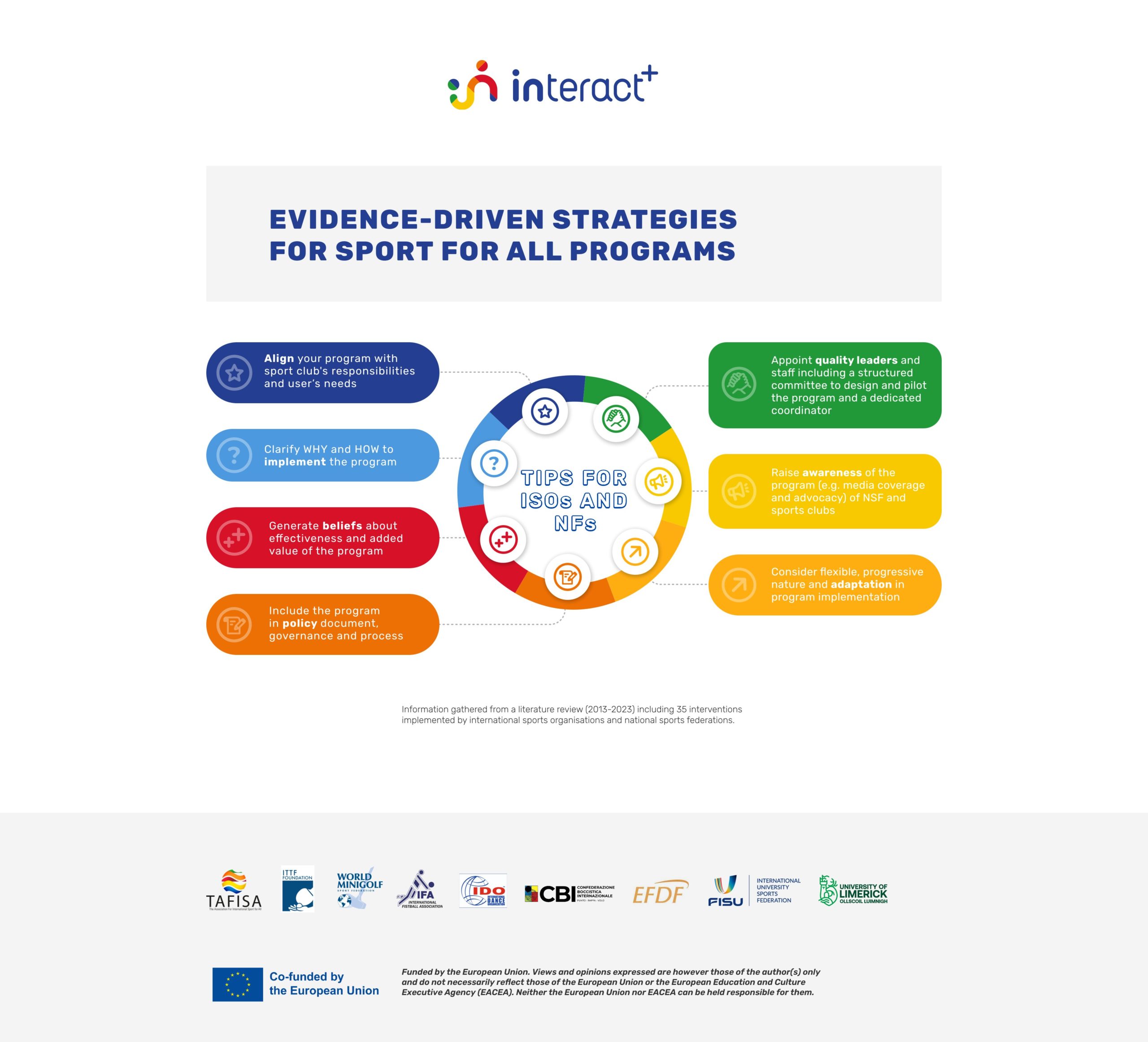
International Sports Organisations (ISOs) and National Federations (NFs) play a crucial role in shaping the future of sports participation and inclusion. However, the traditional focus on elite performance and competitive sports has often sidelined broader social, health, and community-based objectives. The INTERACT+ project aims to bridge this gap by providing ISOs and NFs with the tools and strategic direction...
